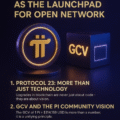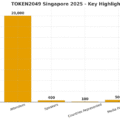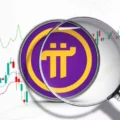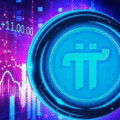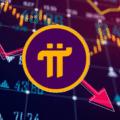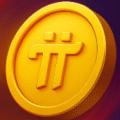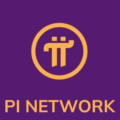The Global Consensus Value (GCV) initiative is gaining momentum in China, with major progress in Yiwu, the world’s largest wholesale hub. Increasing numbers of merchants are now accepting Picoin for transactions, shifting GCV from an aspirational idea into a functioning economic standard.
Community leader Doris Yin has been instrumental in driving this adoption. Her work with merchants and alliances has turned GCV’s symbolic valuation of 1 Pi = $314,159 into real-world practice, reinforcing the belief that value can be community-defined rather than dictated by speculation.
GCV: A Collective Model for Value
The GCV framework ties Picoin’s worth to collective consensus, usability, and participation. Anchored to the mathematical constant π, the model reflects both logic and long-term vision. It encourages pioneers to transact and build with Pi as a functional currency, not a speculative token.
Yiwu as a Launchpad
Yiwu’s vast trade network makes it an ideal testing ground. Reports show Pi payments now cover textiles, electronics, food, and services, supported by the China GCV Industry Alliance with onboarding, infrastructure, and community outreach. These are not trial gestures—they represent verified transactions and operational adoption at scale.
Infrastructure Behind the Shift
Pi’s adoption is supported by the September 3 launch of Protocol v23.01, which adds smart contracts via Soroban, parallel processing, decentralized KYC, biometric authentication, and Linux Node support. These tools ensure Pi can support high-volume, secure, real-world commerce.
Picoin in Daily Use
With its capped supply and low inflation, Picoin is designed for stability and participation. Mining rates were recently reduced to 0.0027405 Pi/hour, strengthening scarcity. Unlike many tokens struggling for utility, Pi is being used for everyday purchases—from groceries to professional services—showing growing trust among merchants and users.
Expanding Reach and Recognition
Pi Network’s presence now spans 160+ countries. The Valour Pi ETP in Sweden manages nearly $947M in assets, while listings on Swapfone (BTCC) and integration with Onramp Money make Pi accessible in over 60 countries. These moves boost liquidity and institutional recognition.
Challenges Ahead
Governance centralization, scaling, and volatility remain hurdles. With 82.8% of tokens still held by the Core Team, decentralization is a work in progress. However, the PiOS codebase (90% complete) and DAO testing aim to give the community greater control in the future.
Next Steps
The roadmap includes:
- Full rollout of Soroban smart contracts
- Expansion of staking and DAO governance
- Pi-powered marketplaces and ID services
- Smart contract–driven applications
- Major exchange listings
- Broader GCV expansion beyond Yiwu
Conclusion
Yiwu’s adoption marks a turning point: GCV is no longer theoretical, it’s operational. Backed by merchants, community leaders, and new infrastructure, Picoin is evolving into a currency of trust and participation. For pioneers, developers, and institutions, Pi Network is proving that value defined by community use can thrive in real-world commerce.







